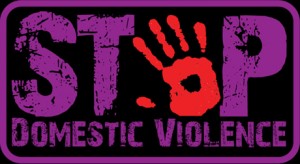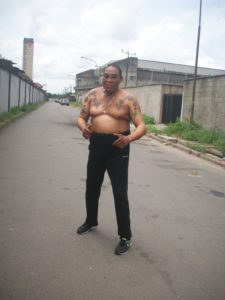Domestic Violence: Exploring a ‘Mohammed Ali’ styled solution
 They were both young and tickled by the concept of love. It was the typical story of teenage girl meets guy and falls in love: “I met him when I was about fifteen.
They were both young and tickled by the concept of love. It was the typical story of teenage girl meets guy and falls in love: “I met him when I was about fifteen.
He told me he loved me and I believed and then got pregnant and moved in with him. Things had gone on well for a while before the beatings started and then intensified. I hid it because I loved him and we already had three children together and besides I had no skills and was not financially independent. It also seemed like I had nowhere to go but I could not hide the situation for long. Neighbours were talking and eventually my family members found out,” recounts Ama (not her real name).
Sometimes victims like the narrator feel reluctant to expose the abuser even when the physical signs are there for all to see. Emem Ememandu is a qualified medical doctor. She expatiates on the typical scenario, “There are usually physical injuries, that can’t be explained or the explanation given does not match the severity.”
In sub-Saharan Africa, Ama’s story is not peculiar. An article on spousal abuse written by S.O Bamiwuye and Clifford Odimegwu on June 17, 2014 in the Biomed Central online periodical gives a clear picture: “The overall prevalence of any form of violence (on women) ranges from 30.5 in Nigeria, 43.4 in Zimbabwe, 45.3 in Kenya, 57.6 in Cameroon.
In Ghana specially, a report on cfr.org that was published in July 2016 titled; “Violence against women in Ghana; unsafe in the second safest country in Africa,” states “In Ghanaian schools, studies found out that 54 per cent of girls are victims of gender abuse.”

Domestic violence is not restricted to a social class. A Vanguard Newspaper May 2017 report by Adetutu Adesoji highlighted the story of Nollywood Actress’ (Mercy Aigbe) woes as a victim of domestic violence. Mercy herself spoke openly about the situation through several platforms. The situation was so bad that she had to lodge a formal complaint with the Lagos State Government. In due course, her estranged husband apologized publicly.
From Rihanna’s experience with Chris Brown to the poor woman selling on the roadside, it seems that more often than not, romantic love is not enough to stem the tide. A search to find out a more effective alternative led our correspondent to Surulere sports stadium in Lagos Nigeria, to hear from Jerry Okorodudu a retired African boxing champion and a National Coach. He is of the opinion that women should not be involved in such sports like boxing where they would be hitting and boxing themselves because of it’s dangerous nature but concludes thus “it is good for a woman to learn how to punch to prevent being raped.”
On the other hand, Tony Nwabueze aka, ‘Tony the Destroyer’ who is the reigning African Super Heavyweight Champion in wrestling is unequivocal in his support for women who get involved in combative sports. “I was brought up in a setting where both my dad and mum were traditional wrestlers and I never saw them fight each other.”

He buttressed his approval with a story; “but for her skills Tina Trevor, a female wrestler I know would have been seriously beaten. I saw this incident with my eyes. It happened at Ojulegba when she was coming from Ajegunle, she got physically assaulted by a bus attendant for not having change to pay. She threw him on the ground. He was a very huge guy. The crowd that gathered burst into applause, some were so impressed that they sprayed her money.”
However, not everybody is of the opinion that a woman should use physical strength in that manner. Ilavbare Goldfish Rahmatulai is a legal practitioner and president of Women Stop Contributing to Violence and Abuse Initiative (WOSCOVAAI), she speaks specifically on violence within the institution of marriage; “What is lacking in most marriages are, sincerity of purpose, respect and third party interference. Men and women are responsible for violence in a marriage and I choose respect above violence. I insist that where violence and abuse is present in a marriage, the couple should separate to avoid bodily harm or death. It is not a worthy relationship if you must learn how to fight in order to fight back or protect yourself from spousal abuse. I do not support physical, emotional and psychological abuse in a marriage or any relationship.”
Another respondent Tunde Sesan a clergyman gives a similar response. “I’ve always preached that if as a woman your husband put his hand on you leave the house and go report to his parents and pastor. If it continues, leave the house! Many women have died in the name of “endurance.” Martial arts won’t stop some men. It’ll get them more aggravated. A man chopped off his wife’s head with a machete here. Will martial arts stop machete in a man’s hands? I think not,” he said.
A respondent who has been trained on boxing pled anonymity and counters this statement. “Usually it starts bit by bit and the man would test you. I was in a relationship and the man wanted to hit me, when I held his hand in a certain manner to prevent him. I saw fear in his eyes and he never tried it again in all the years we were together.”
But some other respondents, opine that combative sports acquisition by women may lead to counter abuse.
Odunayo Adekuronye is an African Wrestling Champion she has been involved in wrestling for more than ten years. “I have never used my skills outside the arena,” she says.
A Commonwealth Wrestling Champion Aminat Adeniyi sheds more light. “I started getting interested in wrestling in my secondary school days at United CAC School in Akure (Nigeria). I wanted to use it to fight and to make people respect me but part of what we learn is self-control and now that I have the knowledge I don’t even use it but I am glad I have it and I advise other women to learn too. I pray for a happy marriage but one never can tell,” Veron Adeoluwatobi, a black belt holder in martial arts is of the same opinion.
“We are trained not to be aggressive. In actual fact once they see you fight, they suspend you immediately but I will advise every woman to learn how to defend herself. I was once a near victim of a pickpocket but because of my skills, I gained the upper hand.”
However, Tunde Sesan goes a bit deeper. “Flesh won’t conquer the flesh,” he said referring to a non-tangible dimension and a possible source. This deeper issues are explored by Blessing Iwechi who is a Ghanaian trained graduate of psychology. She gives an insight on the inner workings of potential abusers.
She says, “it could be as a result of carried-over trauma. Some persons were abused children etc. and did not receive therapy so they grow up with that trauma, begin to raise families. The possibility of becoming an abuser in such cases is 80 per cent. Some have the inability to control hurts. Some do not know what to do at that point so they resort to using their muscles either by punching or forcing. Some want to be in charge.”
On potential victims. She gives an analysis. “One can become a victim by overlooking the traits in a relationship and also the manner in which the respondent/recipient immaturely handles issues.”
Despite the varied opinions from respondents, there is a common thread running through the responses i.e. an aversion for domestic violence in any form and this indicates that all hands must be on deck in the fight to prevent future occurrences.
By Omordia, Efe Alexandra
Copyright ©2018 by Creative Imaginations Publicity
All rights reserved. This article or any portion thereof may not be reproduced or used in any manner whatsoever without the express written permission of the publisher except for the use of brief quotations in reviews.
